Dried Lemon Slices
There are many health benefits attributed to dried lemon, as well as fresh lemon juice. This citrus fruit, famous for centuries for its properties, has been considered in a variable way over time and in different cultures. Let's see how and why...
Dried Lemon Slices: Properties and Benefits
In ancient times, this citrus fruit was used as a natural antiseptic and disinfectant, for the body and for everyday objects. For some centuries, however, studies have revealed its high vitamin C value.
This substance is contained in lemons, which allow us to use ascorbic acid in our body, effective in preventing scurvy disease, and as an antioxidant.
Other beneficial substances contained in natural dehydrated lemon are lutein and zeaxanthin, naringin, hesperetin and naringenin. This last element has been discovered to have an excellent effect on human health as an antioxidant, to counteract the harmful action of free radicals.
For these reasons, lemon is also considered beneficial for the immune system.
In the past it was used as an anti-inflammatory, and today it is considered an excellent food for defense against attacks of flu and colds. In particular for its anti-allergic function, since lemon lowers the levels of histamine, an organic compound that causes red eyes and runny noses.
In addition to vitamin C, lemons contain substances such as vitamin B complex such as folates, pyridoxine and pantothenic acid.
Even in the version of natural dehydrated lemon without sugar, it makes available minerals such as calcium, iron, copper and potassium – elements that help the body regulate blood pressure and are beneficial for muscles.
For digestive well-being, lemons are rich in dietary fiber, which helps assimilate food together with citric acid, a natural preservative that is also excellent during digestion.
This acid helps the intestine to function properly, and is also considered valid in preventing kidney stones (it has a corrective effect on the kidneys). Even its acidic flavor, also present in the version of dried natural lemons, comes from citric acid.
In natural lemon, citrates (salts) also aid digestion by regulating natural acidity.
These alkalizing citrus fruits purify the stomach walls from an accumulation of acid, reducing symptoms such as heartburn and gastroesophageal reflux.
Other substances that characterize lemons in particular are D-limonene and pinenes, contained in lemon essential oil and peel. D-limonene has long been the subject of research for its anti-inflammatory properties, and as a natural element suitable for the prevention of stomach acidity - since it regulates the production of gastric juices.
Regularly consuming natural dried lemons without added sugar is an excellent idea for a snack in a slimming diet, since lemons, in addition to not having added sweeteners, do not contain cholesterol or saturated fats.
Origins and History of Cultivation
This citrus fruit probably originated in the East, between China, Burma and the Indian region of Assam. In any case, the evidence that speaks of lemon in China dates back to 500 BC.
According to other scholars, lemons originated at the foot of the Himalayas and then spread throughout the Middle East, Europe, Africa and even the Americas through the travels of Christopher Columbus.
Already with the ancient Romans, and more in the Middle Ages, the lemon plant arrived in Persia and Egypt. It is precisely from the Persian term līmū, used for all citrus fruits, that the term lemon derives.
In Italy they were first cultivated in Sicily, in the 10th century, and later in Genoa during the Renaissance. As for Australia, it seems that Captain Cook introduced the lemon in the late 18th century.
It is important that in the mid-18th century, the physician James Lind recommendedthe use of lemon juice as a cure for scurvy, especially for sailors who risked food shortages due to their poor diet of fresh foods.
In every culture that has known them, lemons have been used as foods both for their antiseptic and fluidifying properties. In traditional folk medicines, lemons were also used for their haemostatic and vermifuge properties and to aid digestion.
Currently, among the fruits that the earth gives us, lemons are among the most cultivated in the world.
Plant and Fruit
The lemon plant is Citrus limon, native to Asia, part of the Rutaceae family.
Its young leaves are reddish and ripen becoming green; the plant, in fact, is an evergreen broadleaf tree, not very tall.
The scented flowers are white at the top and slightly purple at the bottom, and the fruit we know, the lemon, is subsequently oval. The peel changes from a light yellow to a warm yellow, always dotted with sebaceous glands.
The lemon plant prefers tropical and semi-tropical climates for cultivation, in fact commercial production is more developed in these areas of the planet. It requires slightly acidic soil for cultivation.
Nutritional values of dried lemon slices
It is very rich in nutrients, and has a low calorie content compared to other dried fruits (346 kcal),
In its natural lemon version without added sugars, it contains almost no fat (0.1%), and provides minerals, vitamins, proteins and fiber (about 1.6 g / 100 g).
The nutritional properties of lemon show good levels of vitamin C (about 53 mg / 100 g) and vitamin A (22 IU), in addition to the presence of phytonutrients such as folates (11 µg), niacin, pantothenic acid (about 0.190 mg / 100 g), pyridoxine (0.080 mg / 100 g), riboflavin (0.020 mg / 100 g), thiamine (0.040 mg / 100 g).
Even as a natural dried fruit, lemon provides minerals such as potassium (about 138 mg / 100 g), calcium (about 26 mg / 100 g), magnesium (about 8 mg / 100 g), phosphorus (about mg / 100 g), copper (about 37 µg / 100 g) and iron (about 0.60 mg / 100 g).
Other beneficial substances are beta-carotene (3 µg / 100 g), cryptoxanthin (20 µg), lutein-zexanthin (11 µg).
How to consume dried Lemon slices in cooking or as a snack
Dried lemons are excellent snacks to stave off hunger for their tasty taste, especially because as dried lemons, they can be useful as snacks in weight loss or maintenance diets.
Thanks to the shape of dried slices, they are used for decorations in cocktails, but also to decorate the top of ice cream, cakes, cupcakes, muffins and other sweet - or sweet and sour - specialties.
Those who prefer the sour taste of dried lemons, include them as ingredients in some exotic salads, or in refined dishes.
Natural dried lemon is perfect to be added to yogurt and dried fruit and cereal mixes, appetizing for breakfast or snack. Dried lemon slices could also be useful elements to create energy bars. They are excellent dehydrated citrus fruits without added sugar to add to teas and infusions - a way to protect the body for digestive purposes or against cold symptoms.
Sliced dried lemon side effects and contraindications
There are no particular contraindications for the consumption of dehydrated lemon, in moderate doses.
In any case, as with other dried fruit, even if these are dried lemons without added sugars compared to natural ones, in any case in excessive doses they are not recommended for those with high blood glucose levels and diabetes.
A disproportionate consumption of dried lemons is not recommended, even for those who suffer from stomach ache or gastric reflux, and logically for those who are allergic to citrus fruits.
![]()


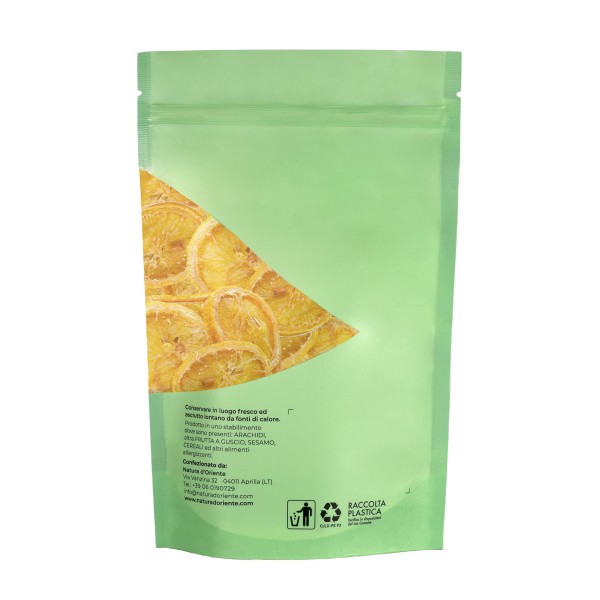






 No reward points for this product.
No reward points for this product.

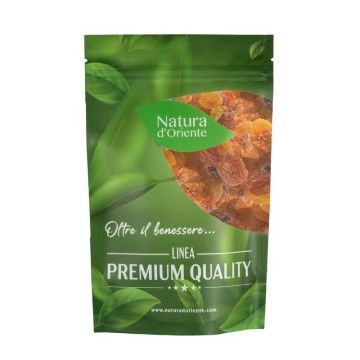
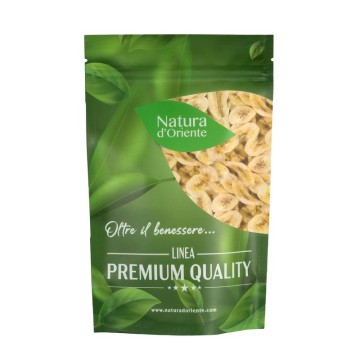
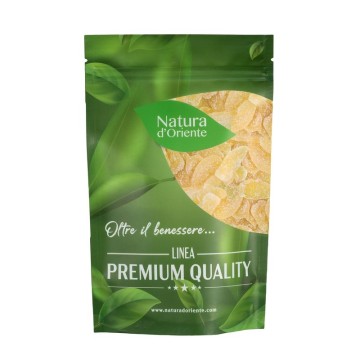
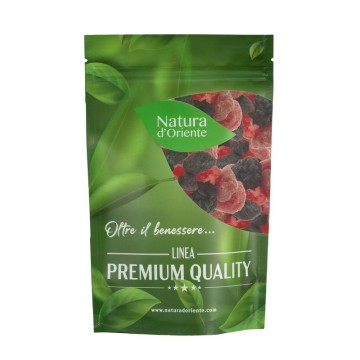
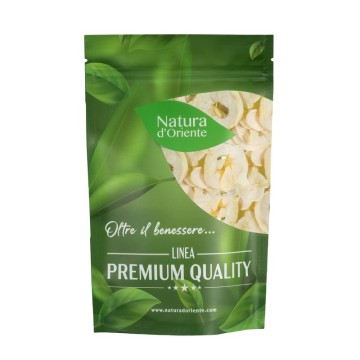
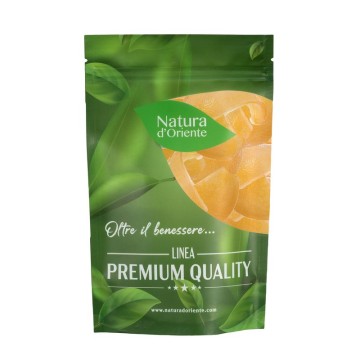
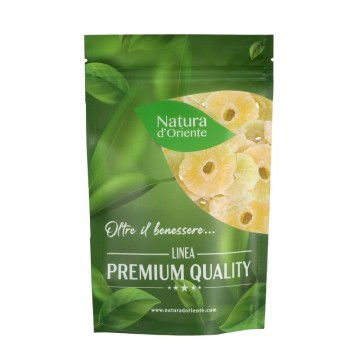
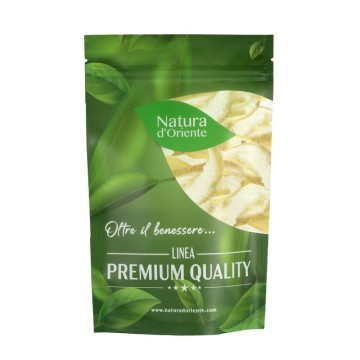
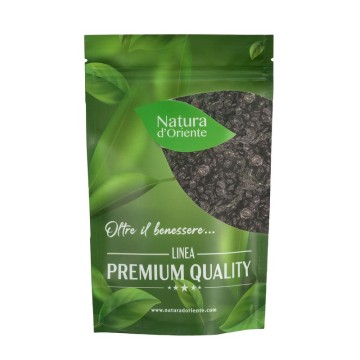

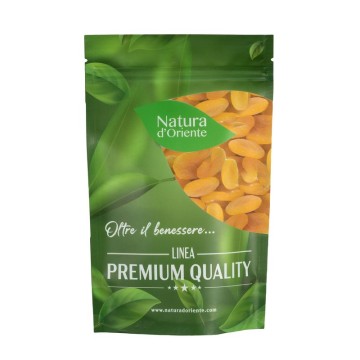
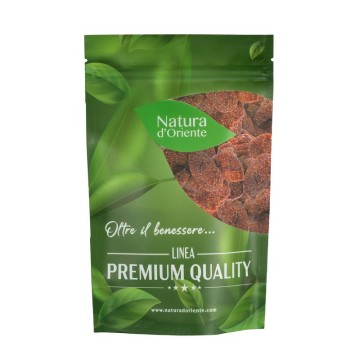
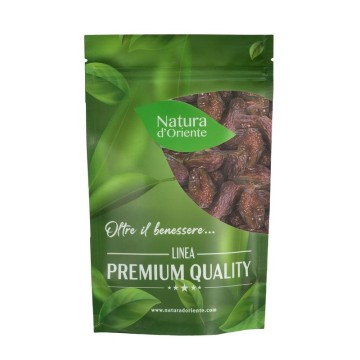
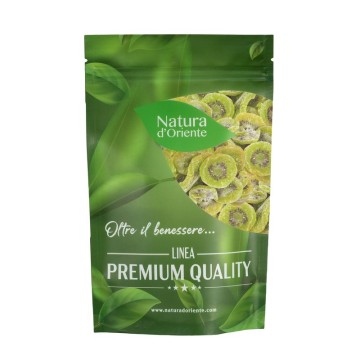
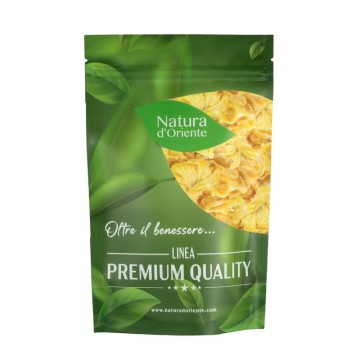
![Natural dehydrated grapefruit without added sugar [NATURADORIENTE]](https://www.naturadoriente.com/10190-home_default/pompelmo-naturale-disidratato-senza-aggiunta-di-zucchero.jpg)